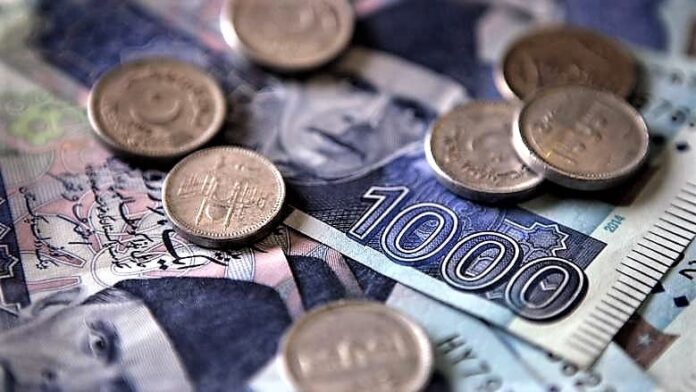On Friday, the Pakistani rupee experienced a sharp recovery in the interbank market, rising by Rs12.43 per US dollar to trade at 286.50. This recovery was attributed to two major developments that took place over the last few hours.
Firstly, according to market talk, the currency gained strength after the demand from imports relatively declined as oil payments were released a day earlier. The previous day’s historic low of 300 for the rupee was due to high demand from imports retiring their payments. However, on Friday, the demand was relatively lower, which helped to reduce the pressure on the rupee.
Secondly, the Supreme Court declared Pakistan Tehreek-e-Insaf (PTI) Chairman Imran Khan’s arrest illegal and ordered authorities to release him “immediately”. This improved the political situation, which also helped to boost the value of the rupee.
The Head of Research at Arif Habib Limited, Tahir Abbas, explained that the combination of lower demand from importers and an improved political situation resulted in the sharp recovery of the rupee. He stated that “less demand coupled with an improved political situation has led to this sharp recovery.”
Abbas also noted that the rupee had remained volatile due to uncertainties surrounding the International Monetary Fund (IMF) programme, which sparked concerns about default. The currency had lost over Rs20 in the last three days due to these concerns.
Despite these concerns, the currency market did not react negatively to Finance Minister Ishaq Dar’s press conference, where he claimed that Pakistan would not default even if there was no IMF programme. This helped to ease concerns about the country’s financial stability and may have contributed to the recovery of the rupee.
In summary, the recovery of the Pakistani rupee was due to a combination of factors, including lower demand from importers, an improved political situation, and the Finance Minister’s reassuring comments. However, the rupee remains volatile due to ongoing concerns about the IMF programme and the country’s financial stability.























